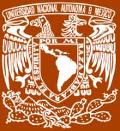|
Boletín de la Sociedad Geológica Mexicana
http://dx.doi.org/10.18268/BSGM2003v56n1a5 |
 |
El origen de la vida desde un punto de vista geológico
J. Arturo Gómez-Caballero*, Jerjes Pantoja-Alor
Instituto de Geología, Universidad Nacional Autónoma de México, Apdo. Postal 70-296, 04510 México, D. F., México.
* This email address is being protected from spambots. You need JavaScript enabled to view it.
Abstract
The origin of life is generally regarded as the most crucial problem since the dawn of scientific thought. For its solution, several hypotheses have been proposed, beginning with that of the spontaneous generation supported by Aristotle, which had validity until 1864, when Pasteur experimentally demonstrated that it was wrong.
Since then, a number of ideas concerning the origin of life by chemical reactions arose, which differed from each other in its particular geographical environment. The first ones were proposed in 1866 by Ernst Haeckel, and in 1868 by T.H. Huxley, but nowadays they have been surpassed in popularity by the Darwin’s hypothesis of the origin of life “in some warm little pond”, enounced in 1871. Later, independently from each other, Oparin and Haldane proposed the hypothesis of the origin of life from a “primordial soup” that had a great acceptance, especially afterwards the classical experiment of Urey-Miller on amino acid synthesis, published in 1953.
The panspermia hypothesis (“seeds everywhere”), which proposes an extraterrestrial origin of life, was enunciated by Arrhenius in 1903. This assumption has been recently strengthened by the discovery of alleged bacteria fossils in Martian meteorites, as well as by the presence in the outer space of complex organic compounds.
Nowadays, the hydrothermal hypothesis should be considered as the most feasible of them, because the depth of the seawaters served as a shelter against the hostile conditions in the surface in that time. Besides, the inherent complexity of the hydrothermal systems offered a wide range of parameters that favor the origin of life: more suitable acidity-alkalinity (pH) and reducing conditions (Eh) than the seawaters; presence of minerals with extraordinary chemical properties, such as the zeolite group or the smectite (montmorillonite) clay group; dependence on the geothermal energy, avoiding the deleterious effect of the ultraviolet radiation of the solar energy; and availability of diverse chemical compounds that react exothermically, which can be used for the metabolism process.
The hydrothermal hypothesis does not exclude the panspermia. Whether life has been originated in the Earth or outside it, the recent discovery of water, originally in liquid state, regarded as a necessary condition for life, in primitive meteorites from the outer part of the asteroid belt, which was heated by radioactive decay of short-lived isotopes, abundant in the beginnings of the solar system, make the hydrothermal hypothesis transpose the Earth limits toward, at least partially, the solar system.
Keywords: Origin of life, hydrothermal hypothesis, panspermia.

